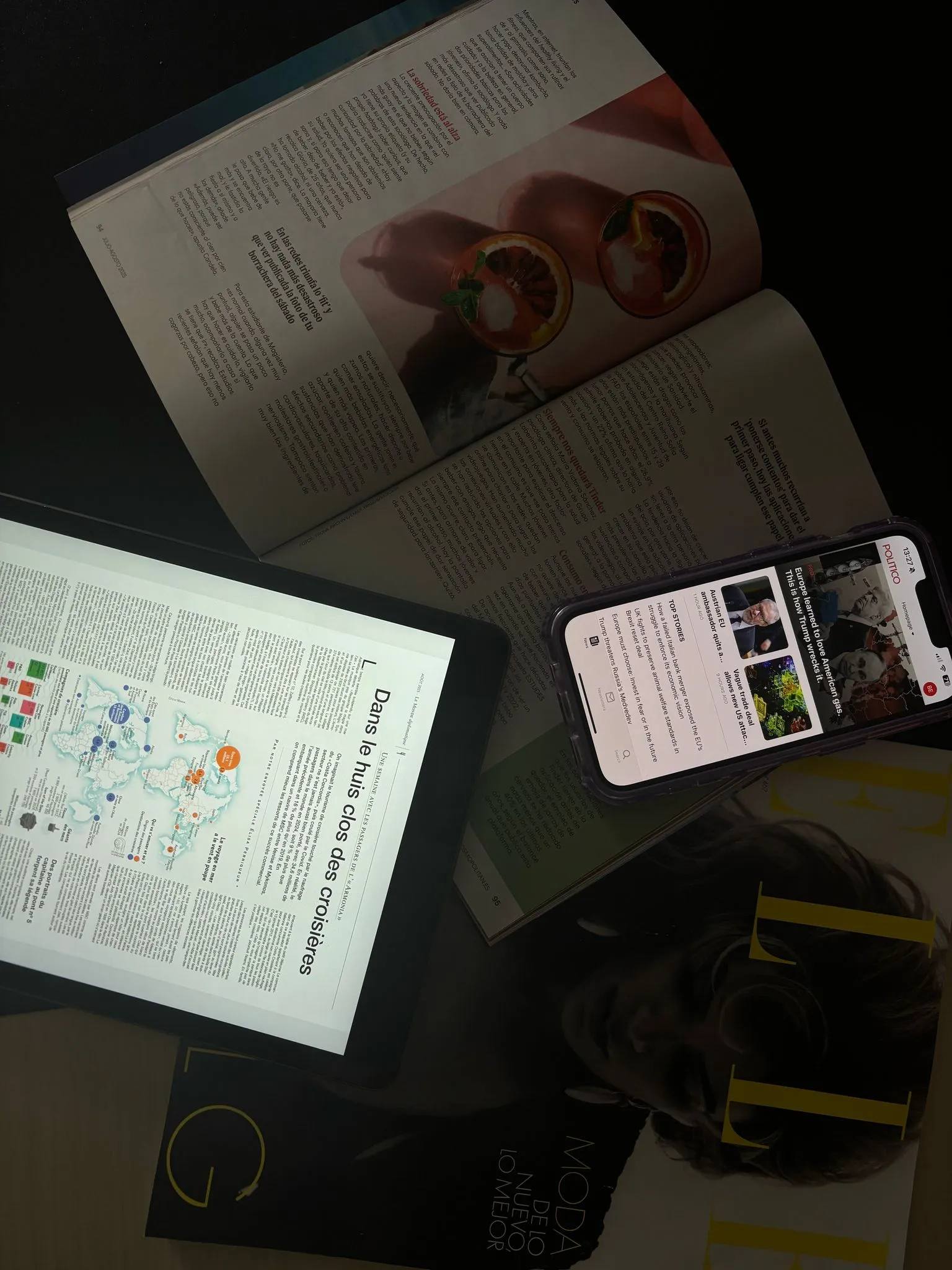And Just Like That… I Was Covering a Diplomatic Crisis in Heels
Confessions from the International Press Corps at MUN

It was Day 2 of the Model UN conference, and while most delegates were still fumbling through policy blurbs and pretending to know the acronyms, my press badge was already hanging lopsided over my vintage blazer, notepad in one hand, double espresso in the other. I wasn’t there to save the world, I was there to cover it.
Welcome to the International Press Corps: the glam, gritty, high-pressure corner of MUN that doesn't get enough credit. We’re not debating clauses, we’re printing them. We don’t argue over amendments, we expose them. IPC isn’t a committee. It’s a newsroom in real time.
From the Runway to the Resolution Room
IPC delegates don’t represent countries. They are the BBC, Al Jazeera, Novaya Gazeta, The Economist, Teen Vogue, and maybe even Breitbart (God help us). And we carry the tone, bias, and ethos of those publications like designer labels, loud, proud, and strategically chosen.
But under the gloss of snarky headlines and catchy meme dumps, there’s a framework. Our editors-in-chief don’t just tell us to “write something fun.” They edit. At a language level (hello, grammar). At a content level, does this piece respect your outlet’s political position? Does it say something?
And yes, GDPR. Even at MUN, we’re conscious. Real names? Ask before you use them. Private messages? Off-limits unless verified. Photos? Credit the source. Press freedom doesn’t mean reckless publishing, it means accountable storytelling.
Press leaks
Let’s talk about press leaks. Some call it shady, I call it spice. When a delegate casually drops a quote during an unmoderated caucus, you better believe my pen is ready. Still, it’s not the Wild West. Leaks need context. Is it from a private convo? A formal session? IPC works with chairs to make sure we’re not turning diplomacy into a tabloid war zone.
But when it works, it really works. Press can unlock gridlocked committees. We shine lights on silent delegates. We push for transparency. Our press conferences? Pure drama. One well-aimed question and suddenly, alliances crumble faster than a fast fashion hemline.
Between the Lines
Every delegate in IPC knows the grind: pitch your piece, do your research, write like hell, and edit harder. A good IPC article isn’t just timely, it’s textured. We don’t want fluff. We want flair and fact. From reels and TikTok skits to longform op-eds, the content palette is diverse. But it’s not just about trends, it’s about media literacy. Satire? Sure, but informed. Critique? Absolutely, but constructive. There’s a difference between a hot take and a reckless one.
At awards time, IPC is judged on consistency, creativity, and contribution. Did your coverage move the conversation forward? Did you reflect your news outlet’s ethos? Did you make your voice heard, not loud but sharp? And it’s tough. Unlike other committees, we don’t get to whisper in blocs or strike secret deals. Our power is public. Our words are printed. Our work is permanent.
Each month I read Le Monde Diplomatique and Cosmopolitan. One gives me geopolitical theory, the other gives me body language hacks and lipstick reviews, and yes, I need both. That’s what IPC is too. Half sharp-eyed realism, half human curiosity. We cover power, but we never forget the people inside it. We analyze conflict, as well as the narrative of conflict. The stories, the silence, the things unsaid.
So yes, IPC is more than memes and moody headlines. It’s where storytelling meets statecraft. It’s where a well-placed quote can change a committee’s fate. And just like that… you might find yourself rewriting the world, one article at a time.
 Beatriz Santos Mayo
Beatriz Santos Mayo